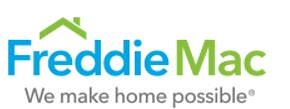
Freddie Mac's Tech Push Aims to Streamline Mortgage Quality Control, Lower Risk
Automated platform seeks to reduce loan defects, speed up processing, and improve loan quality. Is this the future of mortgage underwriting?
Freddie Mac's Tech Push Aims to Streamline Mortgage Quality Control, Lower Risk
NEW YORK, NY – November 17, 2024 – Freddie Mac is rolling out a new automated platform, Quality Control Advisor Plus, designed to overhaul its single-family quality control process. The initiative reflects a growing industry trend toward digitization and automation in mortgage underwriting and is aimed at reducing costs, improving loan quality, and accelerating processing times.
Automating a Critical Process
For years, quality control in mortgage lending has been a largely manual and time-consuming process. Lenders are required to meticulously review loan files to ensure accuracy and compliance, a task fraught with potential for error and delays. Freddie Mac’s Quality Control Advisor Plus seeks to address these challenges by automating key aspects of the review process. The platform integrates disparate QC systems, allowing lenders to upload up to 250 loan files at once and receive immediate confirmation. It also provides real-time alerts for missing documentation, facilitating quicker resolution of issues.
“The goal is to move from reactive to proactive quality control,” explained one industry source. “By identifying potential issues early in the process, lenders can prevent defects and minimize the risk of costly repurchases.” According to Freddie Mac, lenders participating in its performing loan repurchase alternative pilot program – a precursor to the new platform – have experienced a 26% reduction in non-acceptable quality rates.
This push towards automation isn't unique to Freddie Mac. Fannie Mae, a competitor, has its own initiatives, like “Day 1 Certainty,” focused on upfront validation of loan data to reduce risk. Other companies like ICE Mortgage Technology and ACES Quality Management are also providing technology solutions that streamline QC processes.
Beyond Efficiency: Reducing Risk and Costs
The financial implications of Quality Control Advisor Plus extend beyond simple efficiency gains. By reducing the number of defective loans, the platform aims to minimize repurchase requests – a significant source of cost and headache for lenders. Repurchase requests occur when a loan that has already been purchased by Freddie Mac or Fannie Mae is found to be defective, requiring the lender to buy it back.
According to Freddie Mac, lenders have collectively saved millions of dollars in performing loan repurchases through the pilot program. The reduction in repurchase requests was at 56% from peak levels in 2023. While independent verification of those exact figures is difficult to obtain, broader industry data supports the trend. ACES Mortgage QC Industry Trends Report, shows a decline in defect rates, though the data remains volatile. The platform’s ability to streamline the identification and remediation of issues before loans are purchased is seen as a key factor in reducing risk.
“The cost of quality control is substantial for lenders,” commented one mortgage broker. “Any technology that can help us reduce errors and streamline the process is a welcome development.” The platform also integrates with Freddie Mac’s income calculator, which has been adopted by over 1,000 lenders and used for over 15,000 submissions. The calculator is designed to improve the accuracy of income verification, a common source of loan defects.
Impact on the Mortgage Landscape
The broader implications of Freddie Mac’s initiative extend beyond cost savings and risk reduction. The automation of quality control processes could potentially lead to faster loan approvals, making homeownership more accessible for a wider range of borrowers. The platform's integration with other technologies, such as automated income verification tools, further streamlines the loan application process.
However, the increasing reliance on automation also raises questions about the potential impact on the workforce. As more QC tasks are automated, there is concern about potential job displacement. Industry experts believe the shift will require upskilling and reskilling of the workforce, with a focus on data analysis and technology management.
“The mortgage industry is undergoing a significant transformation,” stated another industry professional. “Technology is playing an increasingly important role, and companies need to adapt to stay competitive.” While the long-term effects of Freddie Mac’s initiative remain to be seen, it is clear that the company is betting on automation as a key driver of efficiency, risk reduction, and innovation in the mortgage industry. The platform’s success will likely depend on its ability to integrate seamlessly with existing lender systems and to provide tangible benefits in terms of cost savings and loan quality.
